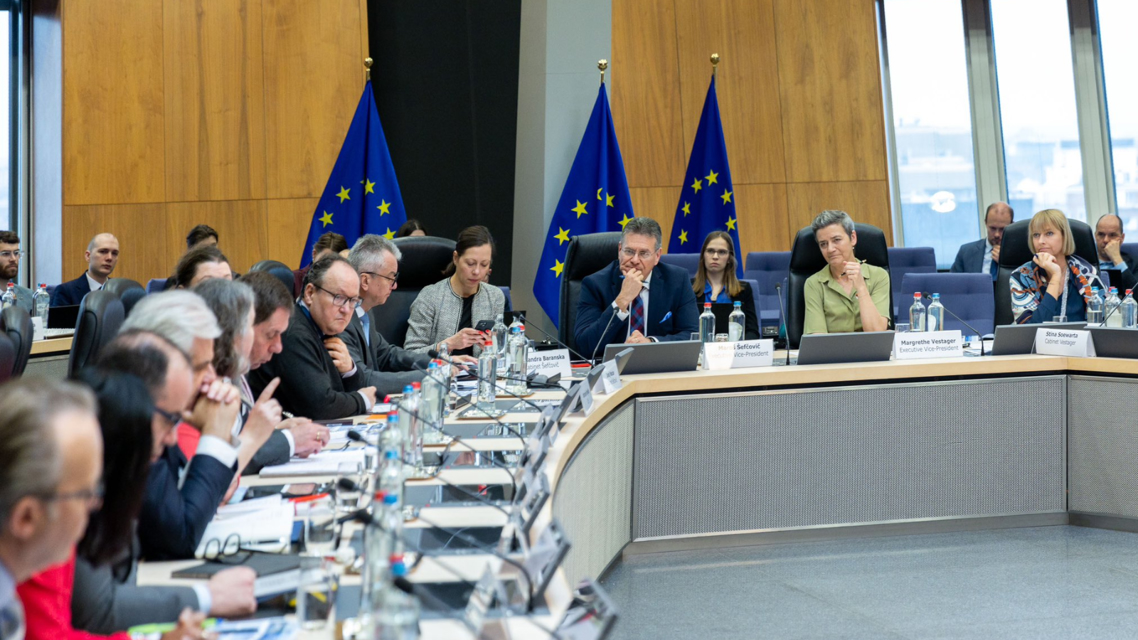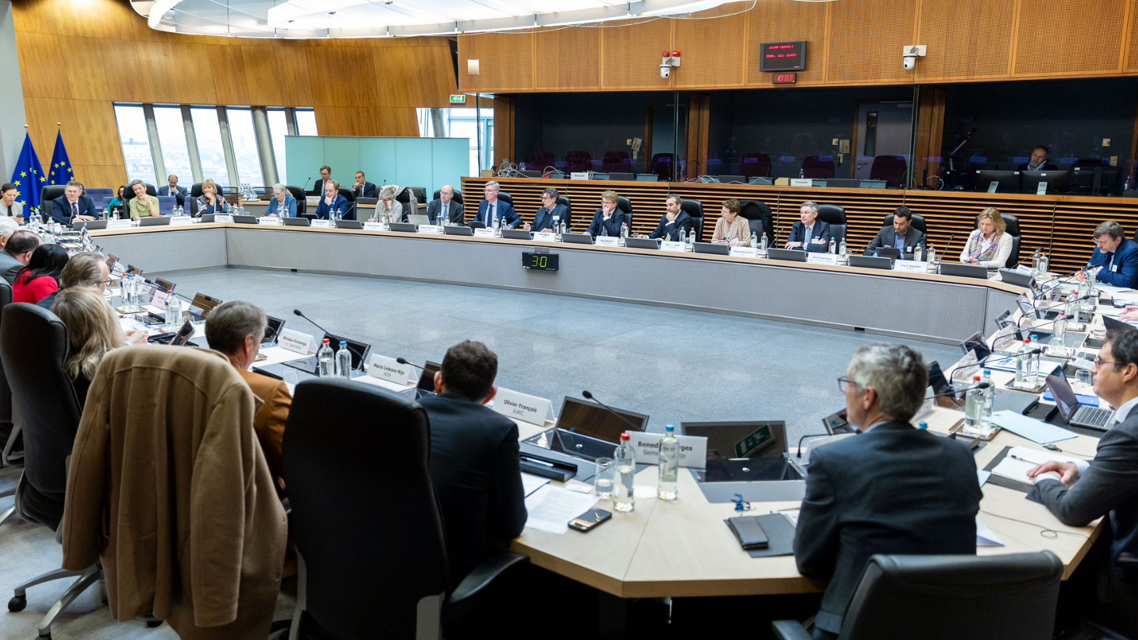At today’s high-level EU meeting on steel, industriAll Europe used their keynote speech to demand urgent action to safeguard the jobs of over 300,000 steel workers in the EU. With various steel plants mothballed and tens of thousands of workers on temporary unemployment, there are real fears that over half of Europe’s steelmaking capacity could be lost alongside thousands of jobs.
Judith Kirton-Darling, industriAll Europe’s General Secretary, said:
“Yesterday, our European Steel Action Day saw manifestations across Europe, with steelworkers and their trade unions demanding action to save their jobs. Workers from north, south, east and west, united across Europe to call for measures to ensure a level playing field and support to get steel plants back up and running, and steelworkers back to work. Today, I was able to raise these demands in person and call on EU leaders, governments, and companies to act now. We need action not words!’’
The EU high-level meeting was co-hosted by European Commission Executive Vice-Presidents Vestager and Šefčovič and aimed at finding solutions to ensure a successful green transition of the European steel sector, noting the importance of competitiveness and resilience. The high-level meeting was a demand of industriAll Europe, particularly in light of the grim situation at GFG Alliance/Liberty Steel, where 20,000 workers face an uncertain future.
With EU steel production dropping by almost 30 million tonnes in the past year, while production outside Europe continues to grow, and global overcapacity peaking at the end of last year, industriAll Europe insists on an urgent plan for the steel sector. While funding is most definitely needed to enable the green transition, industriAll Europe maintains that all public money must include social conditionalities and that companies must reinvest profits in their sites and their workers, as opposed to giving out huge dividends.
While industriAll Europe’s call for a new action plan was backed by various steel companies, the European Commission stressed that the best vehicle for this would be to accelerate the current European Transition Pathway for the steel and metals eco-system. The Transition Pathway, a co-creation stakeholder consultative process, is already underway with industriAll Europe actively engaged on behalf of European steel workers.
Judith Kirton-Darling added:
‘’The European steel sector is in crisis and steel workers demand action, not just words. We will not see our steel plants crumble and close only to import cheap and dirty steel from elsewhere. We need green steel for the green transition in Europe and it should be made here in Europe, with high environmental standards and decent working conditions.
“We are already fully engaged in the EU Transition Pathway for the steel and metals ecosystem, and although we already see good collaboration with stakeholders and trade union demands being included, it is important to stress that the demands in the forthcoming paper will not be binding. Therefore, we need policy makers and companies to commit to putting the forthcoming Transition Pathway into practice to ensure that the European steel sector can survive. Steel needs Europe, and Europe needs steel!’’

